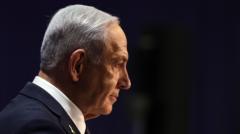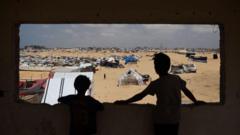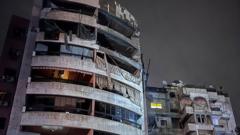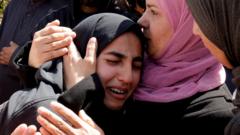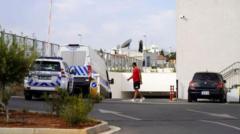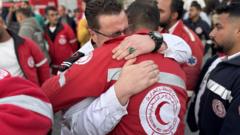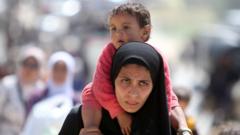Dr. Mark Perlmutter, a U.S. surgeon volunteering in Gaza, reveals that the lack of essential medical supplies has resulted in avoidable deaths among wounded Palestinians. Working in overwhelmed hospitals, he shares accounts of critically injured children, the dire conditions faced by local medical staff, and calls for urgent humanitarian assistance.
Struggling Medical Care in Gaza: A Surgeon’s Alarming Account
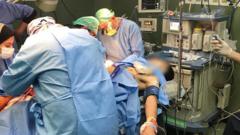
Struggling Medical Care in Gaza: A Surgeon’s Alarming Account
An American surgeon highlights the urgent medical crises and escalating humanitarian needs within Gaza as he details his harrowing experiences treating wounded Palestinians amid a devastating conflict.
Dr. Mark Perlmutter, an American surgeon who has been volunteering in two hospitals in Gaza for the last three weeks, reports that many wounded Palestinian patients have succumbed due to a critical lack of medical supplies and essential equipment. He described harrowing conditions in operating rooms devoid of basic necessities like soap, antibiotics, and even x-ray facilities. With Israeli military operations against Hamas intensifying, the medical situation has become increasingly dire.
Among his patients was a 15-year-old girl who was shot while cycling. Dr. Perlmutter emphasized the urgency of her treatment amidst the chaos, revealing that patients he treated were often brought in with severe injuries resulting from Israeli airstrikes. The Israeli government maintains that the military actions are aimed at pressuring Hamas to release hostages, while Dr. Perlmutter strongly criticized the humanitarian impact of their operations, labeling it as genocide.
During his visit, he worked in Al-Aqsa hospital and later at Nasser hospital, where he witnessed a significant attack against Ismail Barhoum, a Hamas finance leader. The Israeli military questioned his account, stating they do not target uninvolved civilians, yet the conditions under which Dr. Perlmutter operates starkly illustrate the human cost of conflict, marked by injuries of decimated children and ineffective medical responses.
One chilling account involved two 15-year-olds, both gravely injured by helicopter gunfire. The girl was struck while riding her bicycle and faces a grim prognosis regarding her limbs. The boy, who was in a car with his grandmother during an attack, sustained catastrophic injuries that required multiple surgeries. Dr. Perlmutter's accounts reflect a tragic reality, where essential medical interventions could have saved lives.
The situation has been worsened by a blockade preventing any humanitarian aid from entering Gaza, according to U.N. officials. Dr. Perlmutter highlighted the immense pressure faced by Palestinian medical staff who often work tirelessly under extreme stress, without compensation, striving to provide care amidst crumbling infrastructure that pales in comparison to medical facilities in more stable regions.
He compared the medical landscape in Gaza to that of his home state of North Carolina, where trauma centers would be overwhelmed by the current level of casualties seen in Gaza. Many hospitals are either non-functional or barely operating, which amplifies the needless loss of life due to untreated wounds.
Recent statements from organizations and the international community echo the urgent need for humanitarian aid. The U.N. humanitarian chief has described the crisis as one that requires immediate action to uphold humanitarian principles, particularly as the Israeli government has enacted a blockade since early March in response to ongoing tensions with Hamas.
Amid the ongoing violence and reported significant civilian casualties, including over 15,000 children, Dr. Perlmutter warns that if more supply shortages continue, an increasing number of casualties in Gaza will inevitably die from injuries that could have been treated successfully. The surgeon’s dedications and distressing revelations highlight the high stakes at play in the struggle for health care in war-torn regions.

